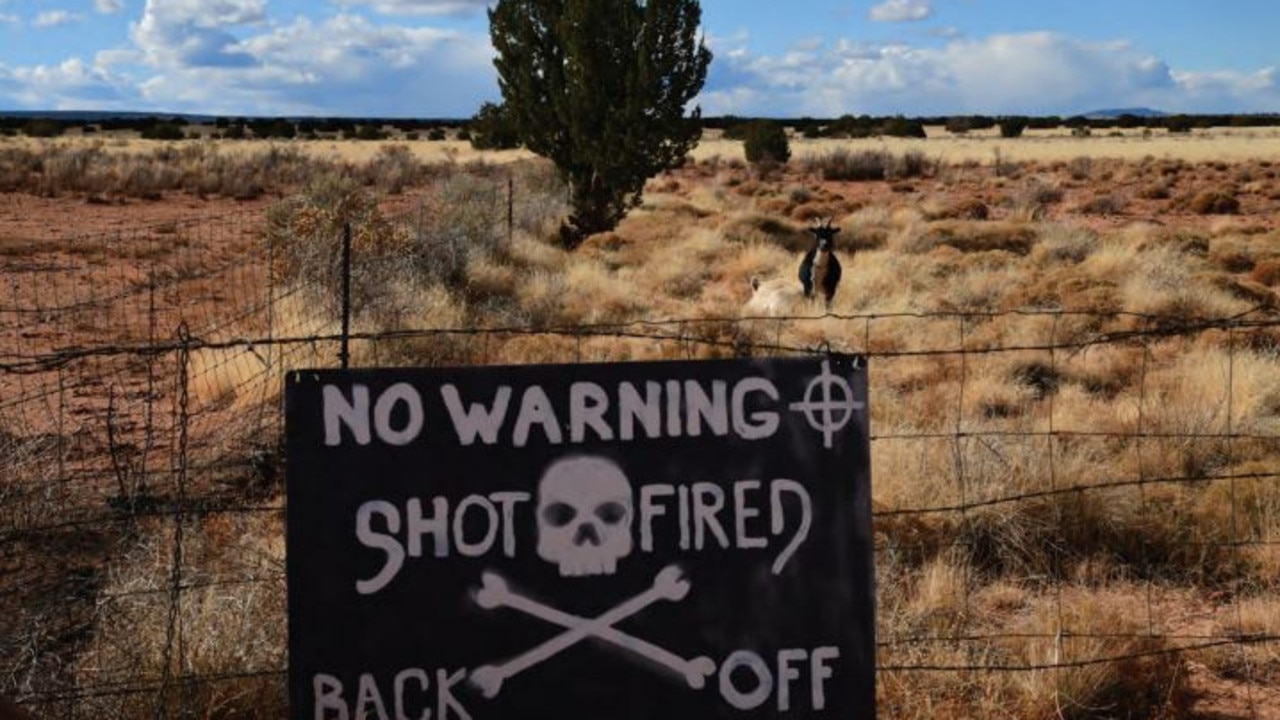Culture of violence and fear in Fregon, Gayle Woodford inquest told
Remote Fregon was, to one of its medical staff, “the most violent place she had ever worked”. Monday’s inquest into the murder of Gayle Woodford revealed the extent of threats that the nurses were exposed to.
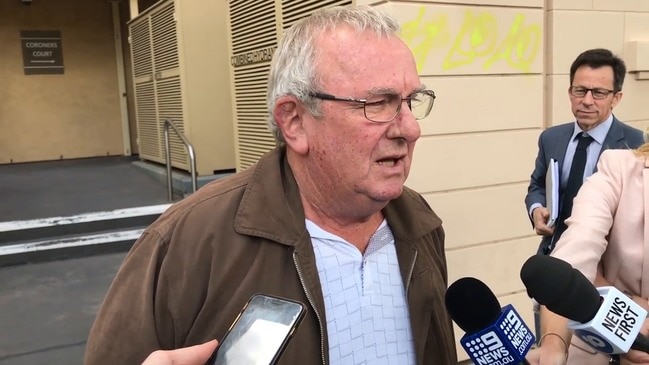
Crime in Focus
Don't miss out on the headlines from Crime in Focus. Followed categories will be added to My News.
- Inquest Day 1: ‘Catalogue of blunders’ after Davey was released
- Prizes, discounts, freebies: Check out the latest subscriber rewards
Medical staff living in the Outback town where nurse Gayle Woodford was murdered have revealed deep fears for their safety, as one labelled Fregon “the most violent place she had ever worked”.
The inquest into Ms Woodford’s death opened yesterday with emotional testimony from her husband Keith about his time in Fregon and the violence he and his wife witnessed on an almost daily basis.
Mr Woodford told Deputy Coroner Anthony Schapel that he had seen more violence in his three-and-a-half years in Fregon than in the rest of his life combined.
Mr Schapel also heard that a “catalogue of blunders” left repeat sex offender Dudley Davey unmonitored by authorities in the months before he raped and killed Ms Woodford, 56, in March 2016.
Counsel assisting Ahura Khalali opened the inquest with a vivid description of the evidence which would be presented to the court from nurses and doctors living in the Fregon community.
“You will hear from a doctor who said Fregon was the most violent place she had ever worked and she has worked at various communities in the Northern Territory for 10 years,” he said.
“She will tell you that the local shop was burnt down following a day of alcohol-fuelled violence.”
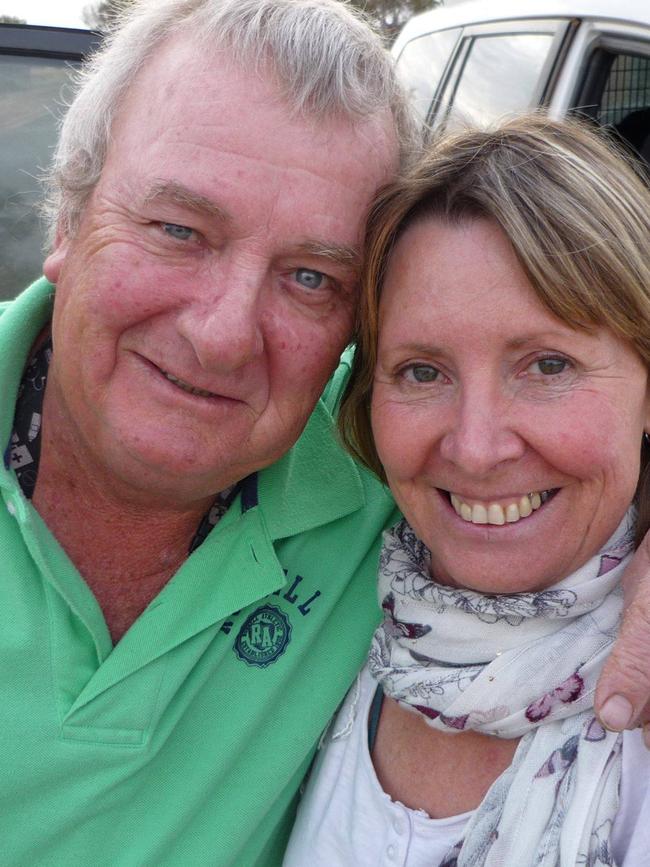
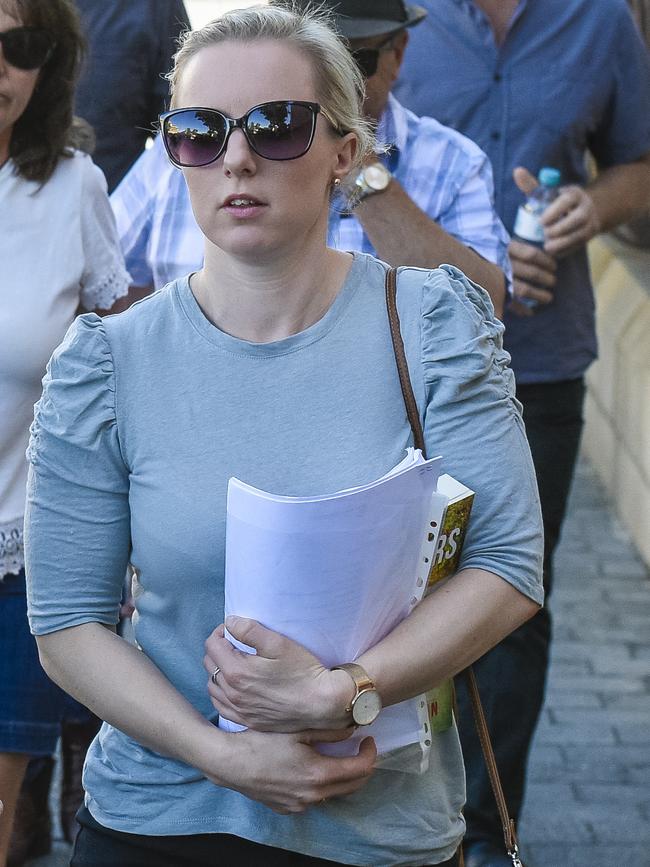
Nurse Belinda Schultz, who worked in Fregon with Ms Woodford told the court she had been threatened while at work on numerous occasions.
“If I was to do an incident report every time I was sworn at or people flew off the handle, I would have been making a few a week,” she said.
“If went a day without an incident in the community, that was a good day but often there were multiple incidents a week.”
Both Ms Schultz and Mr Woodford said they did not call the police when they witnessed the violence because the nearest station was an hour’s drive away.
Despite the levels of violence in the community, nurses at the Nganampa Health Council, which ran the local clinic, were on call at night.
The staff’s homes were equipped with cages so they could safely talk to patients. However, the court heard that medical care through the cage was limited to passing a thermometer and some paracetamol between the bars.
For all other after-hours treatment or emergency house calls, the nurses ventured into the community alone. Mr Woodford said the set-up was “terrible” but the court heard that management at the Nganampa Health Council had told staff: “If you don’t like it, leave”.
Over the next two weeks, the inquest will examine other issues including why Davey was allowed to be in the community despite an “abhorrent criminal history”.
Davey had been released from prison only six months before he killed Ms Woodford, but should have been put on the National Child Offender Register because his last victim had been under-age.
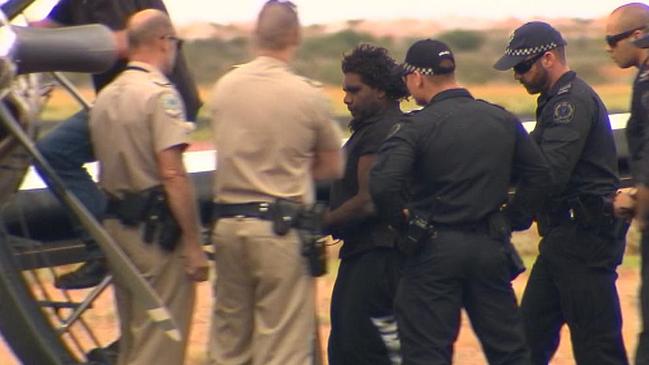
“Dudley Davey was potentially every woman and young girl’s worst nightmare,” Mr Khalali said.
“A catalogue of blunders from the time his original charges were downgraded to when he was released meant Davey slipped through the cracks.”
If Davey had been placed on the ANCOR register, he would have had to report his movements and location to police. Mr Khalali said being on the register could have landed Davey before the courts again.
Ms Woodford was the on-call nurse the night she was abducted, raped and murdered by Davey on March 23, 2016. She was lured from the property, put in her ambulance and driven to the outskirts of Fregon, where she was killed and buried in a shallow grave.
In February 2017, Davey pleaded guilty to Ms Woodford’s abduction, rape and murder. He was sentenced to life in prison with a non-parole period of 32 years.
Originally published as Culture of violence and fear in Fregon, Gayle Woodford inquest told

